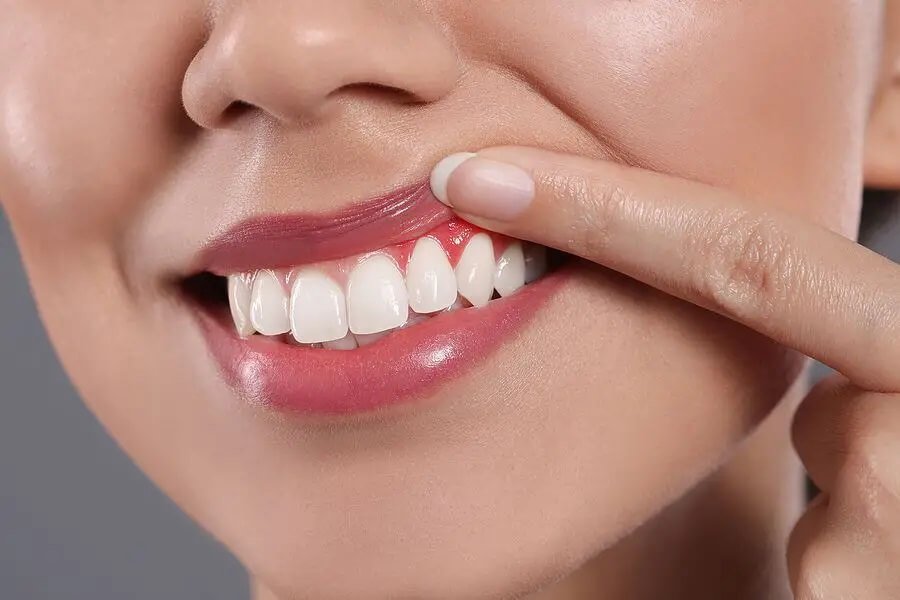Looking to Tighten a Loose Permanent Tooth at Home? You’ve come to the right place! In this article, we will explore various techniques and strategies that you can use at home to address this common dental issue. By following these simple steps, you’ll be well on your way to restoring the stability and strength of your tooth.
First and foremost, it’s essential to understand what causes a loose permanent tooth. Factors such as poor oral hygiene, gum disease, trauma, or even an imbalanced diet can contribute to this problem. To combat these issues, maintaining good oral hygiene is crucial. Regular brushing and flossing will help keep your gums healthy and prevent further loosening.
Additionally, using a saltwater rinse can promote gum health by reducing inflammation and killing bacteria. Applying a cold compress can also aid in reducing swelling around the affected tooth. And don’t forget about the importance of eating a balanced diet rich in nutrients that support strong teeth!
If these techniques aren’t enough, try tooth splinting techniques or consult with a dental professional for further advice. Remember, prevention is key! Taking steps to prevent future tooth loosening is vital for long-term dental health.
Join us as we delve into these effective methods for tightening loose permanent teeth at home – let’s reclaim the stability you deserve!

Understanding the Causes of a Loose Permanent Tooth
If you’re wondering why your permanent tooth is loose, it’s important to understand the underlying causes. There are various reasons why a tooth may become mobile or loose. One common cause is gum disease, which occurs when bacteria build up in the mouth and infect the gums. This infection weakens the tissues that support the tooth, leading to mobility. Another cause can be trauma or injury to the tooth, such as a blow to the face or a sports-related accident. In some cases, grinding or clenching of teeth can also contribute to tooth mobility. It’s essential to seek professional dental advice if you have a loose permanent tooth, as treatment options for loose teeth may vary depending on the cause and severity of your condition.
Maintaining Good Oral Hygiene
To keep your smile shining bright, make sure you’re maintaining good oral hygiene. Taking care of your oral health is essential for keeping your permanent teeth strong and preventing them from becoming loose. Here are some important tips to help you maintain good dental care:
- Brush your teeth twice a day using fluoride toothpaste.
- Floss daily to remove plaque and food particles between your teeth.
- Rinse with mouthwash to kill bacteria and freshen your breath.
- Visit your dentist regularly for check-ups and professional cleanings.
By following these simple steps, you can ensure that your permanent teeth stay healthy and secure in their sockets. Remember, good oral hygiene is the key to a confident smile and overall well-being.

Using Saltwater Rinse for Gum Health
Boost your gum health by incorporating a saltwater rinse into your daily oral hygiene routine. A saltwater rinse is an easy and effective way to improve the health of your gums. It helps reduce inflammation, kill bacteria, and promote healing in the gums. To make a saltwater solution, simply mix half a teaspoon of salt with eight ounces of warm water. Swish the solution around in your mouth for about 30 seconds and then spit it out. Repeat this process twice a day for optimal results.
Click here to read another article about fix receding gums naturally
In addition to its benefits, using a saltwater rinse is also a great alternative to commercial mouthwashes that may contain harsh chemicals or alcohol. It’s a natural remedy that can be easily done at home without any side effects. So why not give it a try and see how it can improve your gum health? Remember, taking care of your gums is just as important as brushing and flossing for overall oral health.

Applying Cold Compress for Swelling Reduction
Incorporating a cold compress can provide relief and reduce swelling when applied to the affected area. Here are four easy steps to follow for reducing swelling at home:
- Prepare a cold compress by wrapping ice cubes in a thin towel or placing a bag of frozen vegetables in a cloth.
- Apply the cold compress directly to the swollen area for about 15 minutes at a time, several times a day.
- The cold temperature helps constrict blood vessels, which can reduce inflammation and alleviate discomfort.
- Remember not to apply the cold compress directly to the skin, as it may cause frostbite. Always use a cloth or towel as a barrier.
By incorporating this simple home remedy into your routine, you can help reduce swelling and promote healing for your loose permanent tooth.
Eating a Balanced Diet for Tooth Strength
Maintaining a well-balanced diet rich in essential nutrients will help strengthen your teeth and support overall oral health. A tooth-friendly diet consists of foods that provide the necessary vitamins and minerals needed to keep your teeth strong. Incorporating a variety of fruits, vegetables, whole grains, lean proteins, and low-fat dairy products into your meals can promote tooth strength. These foods contain calcium, phosphorus, vitamin D, and other nutrients that contribute to healthy teeth and gums. Calcium is particularly important as it helps build strong enamel, the protective outer layer of your teeth. Additionally, vitamin D aids in calcium absorption while phosphorus supports tooth development and maintenance. By following a balanced diet that prioritizes these nutrients, you can improve the strength of your teeth and enjoy better oral health overall.

Avoiding Sticky Foods To Tighten A Loose Permanent Tooth At Home
It’s best to steer clear of hard and sticky foods if you want to keep your teeth in tip-top shape. These types of foods can be detrimental to the health of your permanent tooth, especially if it’s already loose. Hard foods like nuts, popcorn kernels, and ice cubes can cause further damage by putting pressure on the weakened tooth. Sticky foods like caramel, taffy, and gum can also worsen the situation by pulling at the loose tooth or getting stuck in between teeth, leading to decay and gum disease.
To ensure the stability of your loose permanent tooth, it’s crucial to avoid these harmful food choices. Opt for softer alternatives like cooked vegetables, yogurt, and lean meats instead. Furthermore, regular dental check-ups are essential for monitoring the condition of your loose tooth and addressing any underlying issues that could be contributing to its instability. Don’t neglect these check-ups as they play a vital role in maintaining good oral health and preventing further complications down the line.
Using a Mouthguard for Teeth Grinding
Using a mouthguard can be an effective way to protect your teeth from grinding while you sleep. Not only does it prevent damage to your teeth, but it also helps alleviate jaw pain and headaches caused by teeth grinding. There are several benefits of using a mouthguard. Firstly, it acts as a cushion between the upper and lower teeth, reducing the impact of grinding and preventing further loosening of the permanent tooth. Secondly, it creates a barrier that prevents enamel erosion and tooth wear. When choosing the right mouthguard, consider getting a custom-made one from your dentist for optimal fit and protection. Custom mouthguards offer better comfort and durability compared to over-the-counter options. Remember, investing in a high-quality mouthguard is essential for safeguarding your loose permanent tooth and ensuring overall oral health.

Trying Tooth Splinting Techniques
Implementing tooth splinting techniques can be a viable option for stabilizing and supporting a weakened tooth, providing an effective solution to address the issue. Tooth splinting involves using dental materials like wires, composite resin, or bonding agents to bond the loose tooth with its neighboring teeth. This technique helps distribute the biting forces evenly and reduces the strain on the loose tooth, allowing it to heal and tighten over time.
Although tooth splinting is typically performed by a dental professional, there are some home remedies that you can try under their guidance. For example, you can use orthodontic wax or sugar-free gum to temporarily stabilize the loose tooth until you can see a dentist. However, it’s essential to remember that these home remedies should only be used as temporary solutions and not as a substitute for professional dental care.
If you choose to try tooth splinting techniques at home, make sure to consult with your dentist first. They will guide you on the appropriate methods and materials to use based on your specific situation.
Practicing Gentle Brushing and Flossing Techniques
Take a moment to learn some gentle brushing and flossing techniques that will make your oral care routine more enjoyable and effective.
- Brushing Techniques:
- Use a soft-bristled toothbrush to avoid irritating your gums.
- Hold the brush at a 45-degree angle and use small, circular motions.
- Don’t apply too much pressure; be gentle with your strokes.
- Flossing Methods:
- Choose a floss that works best for you, such as waxed or tape floss.
- Gently guide the floss between your teeth, avoiding snapping it against your gums.
- Curve the floss around each tooth in a C-shape motion, reaching below the gumline.

By practicing these gentle brushing techniques and proper flossing methods, you can effectively clean your teeth without causing further damage. Remember to be consistent with your oral care routine to maintain good dental health.
Seeking Professional Advice if the Problem Persists
If the issue continues, it may be wise to seek guidance from a dental professional for a thorough evaluation. Seeking professional advice is crucial when dealing with a loose permanent tooth that persists despite your efforts. A dental check-up will allow the dentist to examine your tooth and determine the underlying cause of the looseness. They can perform tests, such as X-rays or periodontal probing, to assess bone loss or gum disease. Based on their findings, they can recommend appropriate treatment options to tighten your tooth and prevent further damage. Remember, dentists have years of training and experience in diagnosing and treating dental problems. By seeking their expertise, you can ensure you receive the best possible care for your loose permanent tooth.
Taking Steps to Prevent Future Tooth Loosening
To ensure the long-term stability of your tooth, it’s essential that you prioritize regular dental check-ups and follow the advice given by your dentist. These check-ups allow your dentist to monitor the health of your teeth and identify any potential issues before they become serious. They can also provide professional cleaning to remove plaque and tartar buildup, preventing tooth decay and gum disease.
In addition to regular dental visits, there are steps you can take at home to prevent future tooth loosening. Brushing your teeth twice a day with fluoride toothpaste helps strengthen enamel and protect against decay. Flossing daily removes food particles and bacteria from between the teeth, reducing the risk of gum disease.
Here is a table summarizing the importance of regular dental check-ups in preventing tooth decay:
| Benefits of Regular Dental Check-Ups |
|---|
| Early detection of dental problems |
| Professional cleaning for plaque removal |
| Strengthening enamel through fluoride treatment |
| Preventing gum disease through proper oral hygiene |
| Maintaining overall oral health |
By following these preventive measures and seeking professional care regularly, you can maintain the stability and health of your permanent teeth for years to come.

Frequently Asked Questions
Can a loose permanent tooth be tightened without professional intervention?
No, a loose permanent tooth cannot be tightened without professional intervention. While there may be alternative treatments available, attempting to tighten the tooth at home can lead to potential risks and further damage.
How long does it take for a loose permanent tooth to tighten on its own?
It typically takes a few weeks for a loose permanent tooth to tighten on its own. Home remedies can be effective in promoting the tightening process, but professional intervention is recommended for best results.
Are there any specific toothpaste or mouthwash products that can help with tightening a loose permanent tooth?
You’re in luck! Certain toothpaste and mouthwash products can help tighten a loose permanent tooth. Additionally, dental splints are highly effective in promoting tooth tightening. Let me give you all the details.
Can using a mouthguard overnight help in tightening a loose permanent tooth?
Using a mouthguard overnight is not proven to tighten a loose permanent tooth. However, there are other alternatives like dental splints or braces that can be effective. Certain exercises may also help in tightening teeth.
Are there any natural remedies or home remedies that can aid in tightening a loose permanent tooth?
Try these natural remedies to tighten a loose permanent tooth. Use a warm saltwater rinse, apply clove oil, or try a turmeric paste. These home remedies can provide relief and promote healing.
For More Info Visit:
Wrap-up
Congratulations! Now you know exactly what to do tighten a loose permanent tooth at home to go for a little adventure. With all these helpful tips and techniques, you can confidently tighten a loose permanent tooth at home. Just remember to maintain good oral hygiene, rinse with saltwater, apply a cold compress for swelling, eat a balanced diet, try tooth splinting techniques, and practice gentle brushing and flossing. And if none of this works? Well, there’s always the option of seeking professional advice. Happy tightening!


